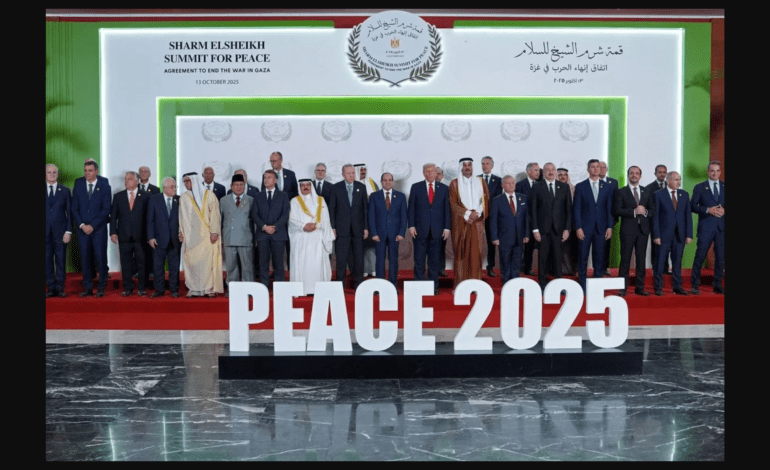
Trump’s breakthrough moment: Can his bold diplomacy redefine global peace?
By: Dr. Avi Verma
The Middle East has seen many attempts at peace — many collapsing under mistrust, political pressures, and extremism. But in a dramatic turn, former President Donald J. Trump has helped broker a ceasefire between Israel and Hamas that has not only momentarily halted violence but reignited global hopes for a pathway to lasting peace.
A deal in Trump’s style — bold, direct, and high-stakes
Trump’s approach to diplomacy has always been unconventional: relying on direct engagement, pressure tactics, and personal leverage. In the latest agreement, his team reportedly leaned on Israeli and Qatari mediators to negotiate prisoner exchanges and humanitarian corridors, while Trump himself placed calls to regional leaders to finalize the terms.
Even critics concede his “strong-arm diplomacy” succeeded where more measured efforts had previously failed. The ceasefire has held long enough to allow the release of all 20 living Israeli hostages held by Hamas, reciprocal release of nearly 2,000 Palestinian prisoners, and the flow of humanitarian aid into Gaza. Israel’s cabinet formally approved Trump’s ceasefire plan, and Hamas cooperated in returning bodies and freeing hostages.
However, the peace still teeters on fragility. Hamas has deployed armed forces and internal security units across Gaza, triggering internal crackdowns and public executions to reassert control. Israel has delayed the release of some bodies, saying certain returned remains do not match official hostage lists. Reports from Gaza hospitals suggest many bodies show signs of torture — raising accusations of war crimes amid the fragile truce. The U.S. Central Command has publicly urged Hamas to cease violence against civilians, disarm, and comply with Trump’s peace plan.
From Gaza to Ukraine: Could this method translate?
If this bold intervention can yield results in one of the world’s most entrenched conflicts, might the same formula be applied to the Russia–Ukraine war? Critics argue the contexts differ dramatically: NATO, sanctions regimes, national sovereignty, and proxy dynamics complicate matters. Still, Trump has repeatedly claimed he could end that war “in 24 hours.” Whether that is bravado or a genuine strategy remains to be seen.
Trump’s prior diplomacy — the Abraham Accords, his summit approach to North Korea, and regional deals in the Middle East — suggests a pattern: disruptive negotiation, high pressure, and bold risk-taking. If he can now build durable mechanisms for peace in Gaza, his approach may gain newfound legitimacy on the world stage.
Is the Nobel Peace Prize within reach?
With the Gaza ceasefire making headlines and eyes on the world stage, the question arises: does Trump’s brand of diplomacy merit higher recognition — even the Nobel Peace Prize? The Nobel has historically celebrated leaders who took political risks to end conflict. With Israel, he delivered monumental steps — though not final resolution. If he can leverage this momentum toward a credible path for Ukraine, his case could change from controversial to compelling.
A legacy at stake
Trump has always been polarizing. To supporters, he is a dealmaker who dares. To critics, an unpredictable force. But in this instance, the numbers speak: hostages freed, prisoners exchanged, aid entering Gaza, ceasefire holding — at least for now.
History’s judgment will depend on whether these fragile gains can be preserved, expanded, and translated into lasting peace. For now, we must acknowledge one fact: Donald Trump has once again shifted the conversation — challenging old assumptions about what American diplomacy can accomplish in conflict zones.
Dr. Avi Verma
Publisher, IndoUS Tribune